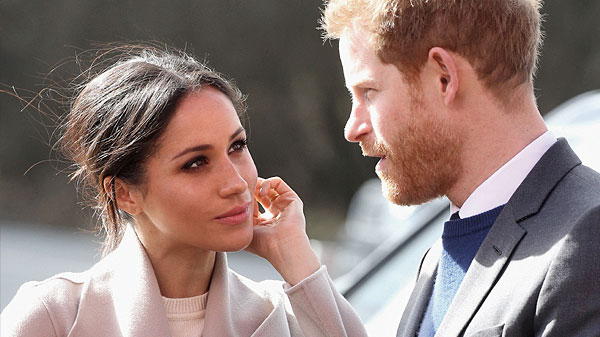Will 19 May see Britain’s Royal Family finally get the upgrade it needs to remain relevant in the 21st century? After all, the royal family is ‘allowing’ a divorced, mixed-race American into its cloistered ranks. With the marriage of Prince Harry – the second son of the current Queen’s eldest son – to Meghan Markle (who ticks all of the above boxes) being widely welcomed by royals and common folk alike, the royal family may have just got the shot of life it needs to stay relevant in today’s context.

The Royal Family hasn’t always been so inclusive. Back in 1936, when Edward VIII wanted to marry a woman who ticked only two of those boxes (divorced and a US citizen), he was obliged to abdicate following fierce censure from all quarters.
So, then, just who is this woman that has won the heart of a prince and is now wooing the approval of Brits of every hue? Previously best-known for her role playing a newly-qualified lawyer in Suits, a US legal drama, Meghan Markle was born in Los Angeles in 1981 to a Dutch-Irish father and an African-American mother. Clearly proud of her ethnicity, she says: “While my mixed heritage may have once created a grey area with regard my self-identification, it allowed me to keep a foot on both sides of the fence and I have come to embrace that.”
That Meghan had all the makings of a strong, independent woman was apparent from early on. When she was just 11, she campaigned against an ad for a washing-up liquid that seemed to imply that a woman’s place was in the kitchen. After she enlisted the support of a number of high-profile women, including Hilary Clinton, the then first-lady, the manufacturer had to pull down the ad.

Subsequently, she used her celebrity status to continue to drive her feminist agenda, largely via The Tig, her campaigning blog. She has also worked closely with the United Nations to promote gender equality. In 2016, she also travelled to Rwanda to promote World Visions’ Clean Water Campaign.
Commenting on how she balances her career and her charity commitments, she said: “It’s true that my life shifts from refugee camps to red carpets. I choose to do both, however, because these worlds can and do co-exist. For me, they must.”
In the UK, she has already begun her charm offensive, one targetted at both the British press and her future brother-in-law’s subjects. To date, though, one or two of her initiatives have backfired a little. She was criticised for sporting a messy bun (royals don’t do bad hair days) and for hugging a schoolgirl in public (apparently another unroyal activity).
One who knows better than most just what she should be doing is Grant Harrold, former butler to Prince Charles, her prospective father-in-law. Giving the princess-to-be a few words of advice, he says: “She has to be careful about what she says, how she says it, and how it’s taken as, after the 19 of May, it will very much reflect on the royal family.”

From the outside, though, it seems that she may already be getting a sense of the enormity of it all. Her choice of wardrobe and her daily schedule all become headlines and are closely scrutinised and followed by royalists across the world. A number of them go as far as to ape her style, which is seen as being trendier and more accessible than that favoured by Kate Middleton, the wife of Harry’s brother, William.
Fashion brands, however, are not the only ones benefiting from the royal marriage. Meghan’s entry into the royal fold is expected to boost the British economy by $1.4 billion (£1 billion). This windfall is expected to be largely derived from the tourism and hospitality sectors, with sales of T-shirts, hats and other merchandise all set to surge as the wedding day approaches.
All the media frenzy and cold profit calculations aside, Meghan and Harry, for their part, seem content to keep things as low profile. But with the wedding itself said to be costing $53 million and Meghan’s dress alone valued at $550,000, it is unlikely that they will be able to duck the spotlight until long after the last bit of royal confetti has blown away.

While cynics have billed this latest royal wedding as a planned distraction from the UK’s ongoing Brexit turbulence, many have been far kinder. Indeed, some have seen it as a sign of hope, arguing that if the royal family can transcend its centuries of snobbery and privilege, then many of the worlds’s other elitist establishments can surely follow suit.
It’s a heavy burden of expectation to put on the 36-year-old’s shoulders. Meghan Markle will, however, have a worldwide audience of some two billion when she ties the knot in Windsor Castle. With that number of well-wishers on board, how can she fail?
Text: Suchetana Mukhopadhyay, Photos: AFP



